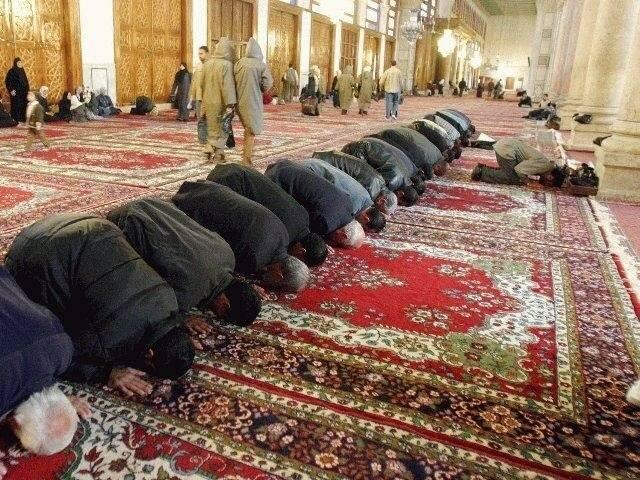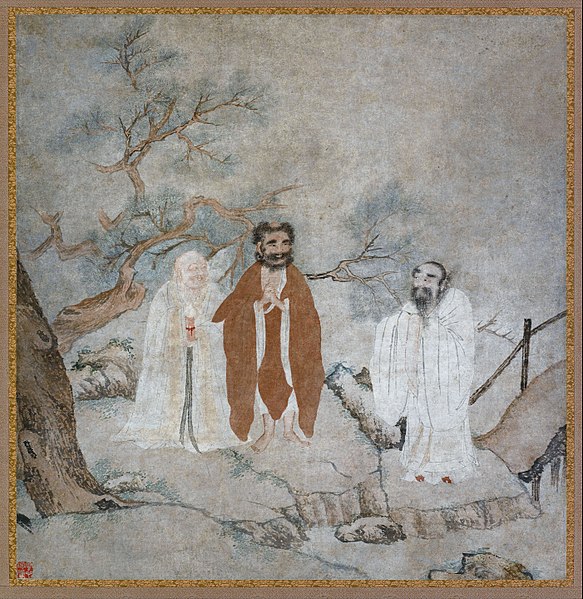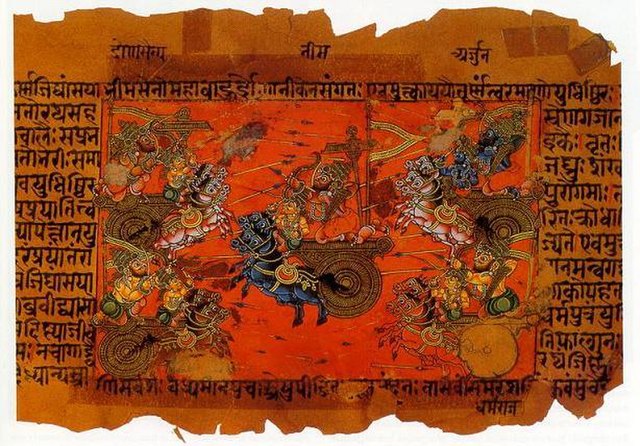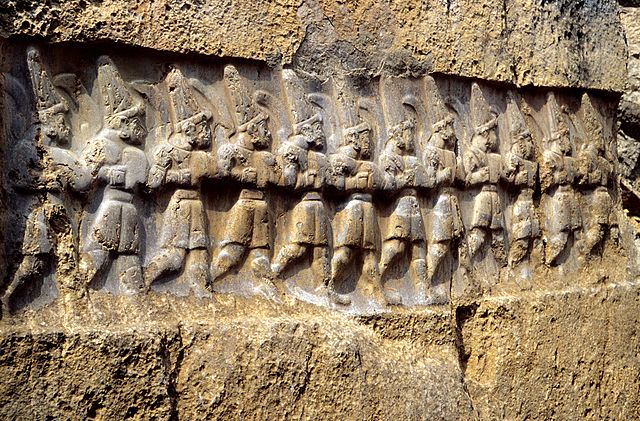Worship is showing regard with great respect, honor, or devotion. This may be encountered in religious settings. In such instances it may represent divine worship; reverence for a divine being or supernatural power. This activity may have other focuses, such as hero worship. Worship may involve one or more of activities such as veneration, adoration, praise, supplication, devotion, prostration, or submission. An act of worship can be performed as simple prayer or through elaborate ceremony, individually, in an informal or formal group, or by a designated leader. The focus of worship is ultimately honoring the subject in some manner.
Detail from Religion by Charles Sprague Pearce (1896)
A wayside cross in Kizhi, Republic of Karelia
Ilja Praasniekka, the Elijah Day worship on the shore of lake in Ilomantsi, Finland in July 1996
In Islam, Sujud (prostrations) occupy a quintessential position in the five obligatory daily formal prayers.
Religion is a range of social-cultural systems, including designated behaviors and practices, morals, beliefs, worldviews, texts, sanctified places, prophecies, ethics, or organizations, that generally relate humanity to supernatural, transcendental, and spiritual elements—although there is no scholarly consensus over what precisely constitutes a religion. Different religions may or may not contain various elements ranging from the divine, sacredness, faith, and a supernatural being or beings.
The Buddha, Laozi, and Confucius – founders of Buddhism, Taoism (Daoism) and Confucianism – in a Ming dynasty painting
Budazhap Shiretorov (Будажап Цыреторов), the head shaman of the religious community Altan Serge (Алтан Сэргэ) in Buryatia
A manuscript depicting the climactic Kurukshetra War in Hindu epic Mahabharata. The Mahabharata is the longest epic poem known and a key source of Hindu mythology.
The Yazılıkaya sanctuary in Turkey, with the twelve gods of the underworld








